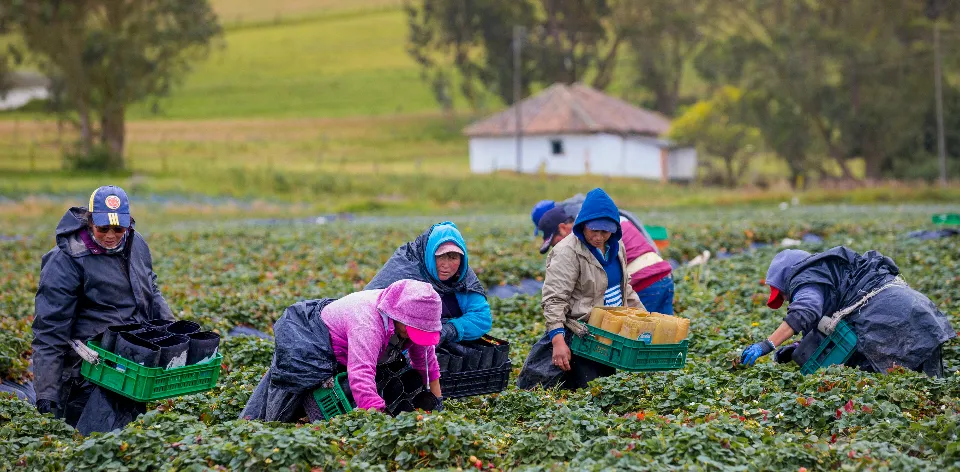PRESS ROOM
 7/6/2024
7/6/2024
Community Action Boards: A Pillar of Peasant Organization in Colombia

The Community Action Boards are the most genuine expression of democracy in Colombian peasant communities.
Bogotá D. C., (@Minagricultura, @UPRAColombia, @claudialili76). The Community Action Boards (CAB) represent a pillar in the organization and development of peasant communities in Colombia. These citizen participation bodies, deeply rooted in the tradition and history of the country's rural areas, play a crucial role in promoting collective well-being, defending local rights, and building participatory democracy from the ground up.
This was a central theme during a discussion with Carlos Duarte, a professor at Universidad Javeriana and an expert in peasant rights in Colombia and Latin America, held within the framework of the Sectoral Statistical Plan, by the Agricultural Statistics Table.
"The CAB are the most genuine expression of democracy in Colombian peasant communities […]. Through these organizations, peasants can come together to address local issues, defend their rights, and work collectively to improve the quality of life in their territories," emphasized Professor Duarte.
The CAB, deeply rooted in the tradition and history of the country's rural areas, are citizen participation bodies that represent a pillar in promoting collective well-being and building participatory democracy from the ground up. They function as communication channels between rural communities and local and regional authorities, exerting political and social pressure to ensure that local needs and concerns are addressed in public policy formulation and resource allocation.
As Professor Duarte stated, "the CAB are guardians of autonomy and self-management in peasant communities […]. Through active participation in the CAB, peasants can exercise control over their own destiny and work together to build a more prosperous and equitable future for all."
In addition to their political and representative function, they also promote community development and social cohesion through projects aimed at improving infrastructure, education, health, and the environment. They are spaces for meeting, dialogue, and action where peasants can unite in solidarity to face challenges and seize opportunities that arise in their territories.

